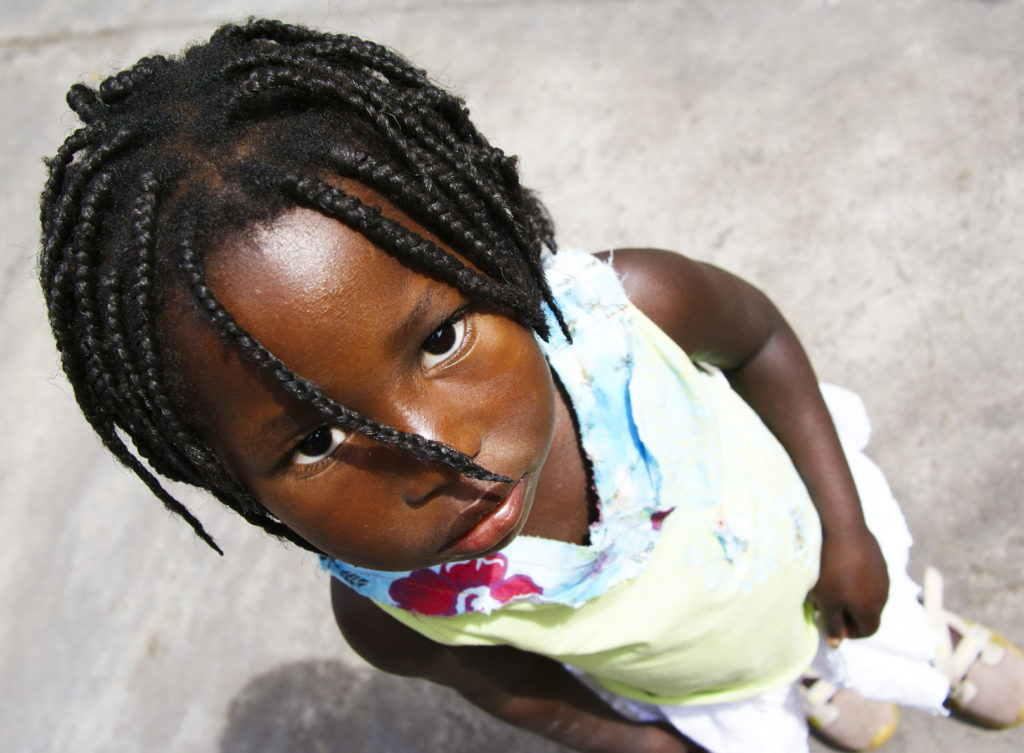With the conclusion of the 2016 Olympics in Rio, many have been moved by stories of inspiration and triumph. One particular story that resonates in the foster and adoptive community is that of Olympic Gold Medalist Simone Biles. She, along with her siblings, was adopted by her grandparents in 2001 after her mother’s parental rights were terminated. Simone’s story, however, is not the average tale of a black child in foster care.
This is the reality in America: black children are less likely to be adopted when removed from their homes due to abuse and neglect.
The disproportionate percentage of black kids in foster care sheds light on a deep-rooted problem in society.
Even though African Americans are in the minority in America, black children are in the majority when it comes to needing forever homes.
According to the Department of Health and Human Services (DHHS) in 2015, black children made up 15 percent of kids under the age of 18 in the United States but also made up 24 percent of children who were in foster care under the age of 18.
The trend of systemic racism isn’t only seen in foster care but is mirrored in private adoption as well.
The private adoption story of a white woman who looked to adopt in Minnesota was shared in an article from NPR’s The Race Card Project series – Six Words: ‘Black Babies Cost Less To Adopt’. She disclosed she was unable to adopt a white baby because of the high price.
Without legal fees included, it was approximately $35,000 to adopt a white child but $18,000 for a black child. That $17,000 difference proves that it costs less to adopt children who are black, suggesting a devaluing of the lives of black children in America.
Since black kids are harder to place for adoption, the lower cost is meant to be an incentive for families who may find it financially challenging to adopt.
In addition, according to the NPR article, the actual process of adoption is quicker for black children because so many are waiting for forever homes.
The Race Card Project also reveals that while private adoption agencies do decide the costs based on ethnicity, it is not widely discussed.
Although costs are covered for adoption from foster care, there is proof of racial disparity when it comes to foster care and adoption specifically.
A report given by the DHHS in 2013 substantiated that black children were more than twice as likely to be placed in foster care.
Additionally, while the wait for adoption for white children in care was generally 18 months, it was 29 months for black children.
According to a report by Advocates for Children in New Jersey, 1,022 black children were waiting to be adopted as opposed to 685 white children in 2013. In that same year, 2,084 black children entered foster care in New Jersey while 1,591 white children entered into care.
According to a 2011 finding by the DHHS, reports of abuse of black children were more likely to go through a screening process than abuse of white children. When instances of neglect were proven, white families were still more likely to stay together (e.g., kinship care) while black children were placed in non-relative resource homes.
An article by Vox refers to a book written by a University of Pennsylvania law professor, Dorothy Roberts called Shattered Bonds: The Color of Child Welfare. In the book, she suggests the government seems to believe that black children’s mistreatment is pathological and requires them to be removed from their biological families to break cycles of abuse.
Roberts suggests the government deal with the root of systemic issues that put black families at risk (e.g. poverty), as opposed to disconnecting black children from their homes.
Merely separating black children from their families and communities does not solve the problem.
Fortunately, there are resources available that can help lessen the number of black children waiting to be adopted.
The North American Council on Adoptable Children lists agencies that specialize in helping African American families and assist with the adoption of black children.
For questions about foster care or adopting from foster care in New Jersey, call Foster and Adoptive Family Services’ (FAFS) Information Line at 800.222.0047.
For residents outside of New Jersey, you can contact your local agency to learn more about becoming a foster or adoptive parent.


Pingback: The US adoption system discriminates against darker-skinned children – Headlines
Pingback: The US adoption system discriminates against darker-skinned children | DJG Blogger
Pingback: The US Adoption System Discriminates Against Darker-Skinned Children | Black America Web
Pingback: The US adoption system discriminates against darker-skinned children – The Daily Angle
Pingback: {The US|The united states|The} adoption system discriminates against darker-skinned children - NewsMag360_FlexMag
Pingback: Research shows the US adoption system discriminates against darker-skinned children - De Birhan
Pingback: The Us Adoption System Discriminates Against Darker-Skinned Children - Greater Diversity News